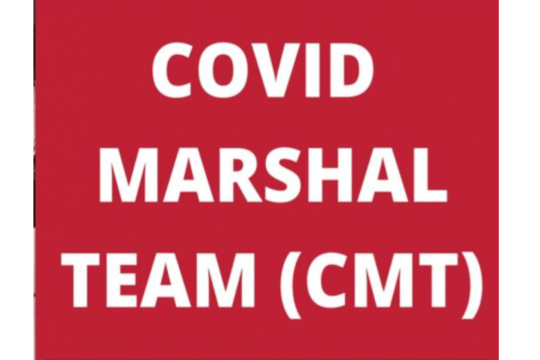Background
This Article explains How to file income tax return in case of profit/loss from F&O trading, Applicability of Audit in case of loss from F&O Trading, Treatment of profit/loss from F&O Trading in the income Tax Return, Applicability of Tax Audit, Calculation of turnover in case of F&O Trading, Treatment for Expenses against F&O Income, Maintenance of Books of Accounts, Provisions relating to filing of Income Tax Return for F&O trading income and Carry forward & and set off of Loss from F&O transactions.
- What is a speculative transaction?
“speculative transaction” means a transaction in which a contract for the purchase or sale of any commodity, including stocks and shares, is periodically or ultimately settled otherwise than by the actual delivery or transfer of the commodity or scripts
- Whether Trading in Futures & options will be considered as Speculative transaction?
No, Trading in derivatives including commodity derivatives carried out in recognized stock exchanges (NSE or BSE) electronically through stock brokers or sub brokers or such other intermediaries registered under SEBI Act supported by a time stamped contract note has specifically excluded from the definition of Speculative Transaction. Hence, Trading in Futures & options will be considered as Non speculative transaction and will be treated Normal business Income.
- Applicability of Tax audit in case of F&O trading?
Since income from derivative trading is considered as normal business income, therefore normal rules as applicable to tax audit assesses will also be applicable in case of F&O trading.
Therefore, the applicability of tax audit will be as follows in case of F&O Trading:
I) In case of Profit from transactions of F&O trading
- In the case of profit from derivative transactions, Tax Audit will be applicable if the turnover from such trading exceeds Rs. 1 crore.
- If the turnover from such trading exceeds Rs. 1 crore but less than 2 crores then the Tax Audit is applicable if the net profit from such transactions is less than 8% (6%, if all trades are digital).
- If the turnover from such trading exceeds Rs. 2 Crores, then the Tax Audit will be applicable irrespective of Profit and Loss.
II) In case of Loss from F&O Trading
In case of Loss from derivative trading, since profit (Loss in this case) is less than 8% (6%, if all trades are digital) of the turnover, therefore Tax Audit will be applicable.
- How to Calculate Turnover in case of F&O Trading?
Determination of turnover in case of F&O is one of the important factors for every individual for the income tax purpose. Turnover must be firstly calculated, in the manner explained below:
- The total of positive and negative or favorable and unfavorable differences shall be taken as turnover (Absolute profit).
- Premium received on sale of options is to be included in turnover.
- In respect of any reverse trades entered, the difference thereon shall also form part of the turnover.
Here, it makes no difference, whether the difference is positive or negative. All the differences, whether positive or negative are aggregated and the turnover is calculated.
- Practical examples on how to calculate Turnover in case of F&O Trading?
In case of Futures
Let us assume, On 18/05/2020 you bought 20 units of Bank nifty Future at Rs.18500 and sold them on 19/05/2020 at Rs.18200, Loss = (18200-18500)*20 = Rs.6000
On 20/05/2020 you bought 40 units of Bank nifty future at Rs.18100 and sold them on 21/05/2020 at Rs.18400, Profit = (18400-18100)*40 = Rs.12000.
Trading Turnover = Absolute profit = Rs.6000+Rs.12000 = Rs.18000.
In case of Options
Additionally, premium received on sale of options is to be included along with Absolute profit (i.e. favorable or unfavorable).
On 18/05/2020 you bought 40 units of Bank nifty options with strike price 18500 at a premium of Rs.30 and sold them on 19/05/2020 at Rs.80, Profit = (80-30)*40 = Rs.2000
On 20/05/2020 you bought 80 units of Bank nifty options with strike price 17900 at a premium of Rs.135 and sold them on 21/05/2020 at Rs.100, Loss = (100-135)*80 = Rs.2800.
Trading Turnover = Absolute profit + Sales
Absolute profit = Rs.2000 + Rs.2800 = Rs.4800
Premium collected on sale of options = Rs.3200 + Rs.8000 = Rs.11200
Trading Turnover = Rs.4800 + Rs.12000 = Rs.16000.
- Whether any expenses shall be allowed against F&O Income?
Expenses such as postage, conveyance and telephone, incurred for carrying on the business can be claimed as business expenses. You can also claim depreciation on assets used for the business or profession.
- Should we maintain books of accounts in case of F&O Trading?
Since income from F&O Trading is considered as normal business income, therefore normal rules for the maintenance of Books of accounts as prescribed under the Income Tax Act’1961 are applicable. These rules can be summarized as follows:
I) If there is loss in F&O trading or the Net profit is less than 8% (6%, if all trades are digital) of the turnover or the turnover exceeds Rs. 1 crore, then provisions of Tax Audit are applicable and in order to get tax audit done, maintenance of books of account are mandatory.
II) if there is a profit in F&O and the profit is 8% (6%, if all trades are digital) or more of total turnover, then only the income has to be declared as business income and accordingly ITR has to be filed. There will be no need to maintain books of accounts.
- Provisions relating to filing of Income Tax Return for F&O trading income?
Since income from F&O trading is to be treated as business income, therefore an individual filing return with F&O trading income has to file ITR in form ITR 3.
Depending on the requirement to get the accounts audited the due date for filing the return of income will be as follows:
- If Tax Audit is applicable: Due date will be 31st October of the Assessment Year.
- If Tax Audit is not applicable: Due date will be 31st July of the Assessment Year.
- How to Carry forward & set off of Loss from F&O transactions?
Since the F&O Trading is treated as normal business, the loss arising out of F&O transactions shall be deemed as normal business loss and shall be set off against any other head except salary income. If we need to carry forward the loss from F&O transactions after set off, we must file an income tax return within the due date as specified under the Income Tax Act. (i.e. 31st July or 31st Oct as the case may be).






